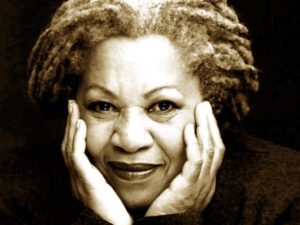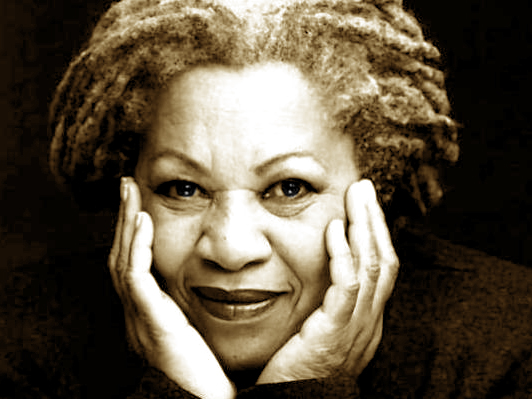Toni Morrison, born Chloe Ardelia Wofford on February 18, 1931, in Lorain, Ohio, was a remarkable American author whose profound and lyrical works continue to shape the landscape of modern literature. Through her richly layered storytelling, Morrison explored themes of race, identity, memory, and the African American experience with unparalleled depth and emotional resonance. This biography provides a glimpse into the life and literary journey of Toni Morrison, highlighting key moments and accomplishments that solidify her as one of the most celebrated and influential authors of her time.
Morrison’s early years were marked by a strong sense of community and family. Raised in Lorain, a predominantly black neighborhood, she was deeply influenced by her parents and their values. Morrison’s father, Ramah Wofford, worked as a welder, and her mother, Ella Ramah Wofford, was a domestic worker. Their experiences as African Americans navigating a racially divided society left an indelible mark on Morrison’s perspective and writing.
Education played a pivotal role in shaping Morrison’s literary aspirations. She attended Howard University, a historically black college in Washington, D.C., where she immersed herself in literature, history, and cultural studies. Under the mentorship of poet Sterling Brown and novelist Toni Cade Bambara, Morrison honed her craft and developed a keen understanding of the power of storytelling.

After graduating from Howard University with a Bachelor of Arts in English in 1953, Morrison pursued a career in teaching, first at Texas Southern University and later at Howard University. These early experiences in academia allowed her to delve into African American literature and folklore, fueling her desire to contribute to the literary canon.
In the late 1960s, Morrison made her literary debut with “The Bluest Eye” (1970), a novel that explored the devastating effects of racism and internalized self-hatred on a young African American girl. With its raw and unflinching portrayal of marginalized voices, the novel set the stage for Morrison’s future works.
Throughout the 1970s and 1980s, Morrison continued to push boundaries and explore the complexities of the African American experience. Her novel “Sula” (1973) examined themes of female friendship, identity, and the consequences of societal norms. It marked a significant step forward in Morrison’s artistic evolution and solidified her place as a distinguished voice in American literature.
Morrison achieved widespread acclaim and international recognition with her novel “Song of Solomon” (1977), which won the National Book Critics Circle Award. This masterful work explored themes of flight, identity, and the search for self in the context of African American history. “Song of Solomon” catapulted Morrison into the literary mainstream, cementing her status as a prominent and influential author.
In 1987, Morrison published her magnum opus, “Beloved.” Inspired by a true story of an escaped slave, the novel delved into the psychological and emotional aftermath of slavery. “Beloved” garnered critical acclaim, earning Morrison the Pulitzer Prize for Fiction in 1988. It remains one of the most celebrated and studied works in American literature.
Beyond her novels, Morrison’s body of work expanded to include essays, plays, and lectures. Her collection of essays, “Playing in the Dark: Whiteness and the Literary Imagination” (1992), provided insightful analysis of the portrayal of race in American literature. Additionally, Morrison ventured into theater with plays like “Desdemona” and “Dreaming Emmett,” showcasing her versatility and commitment to exploring diverse artistic forms.













